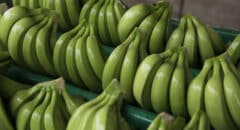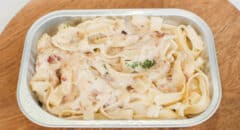
That uncomfortable ache you’re feeling in your tummy could be lactose intolerance, which is your body’s innate response to the overconsumption of milk sugar in your diet. The disorder, which may lead to mild to intense diarrhea, nausea, abdominal cramps, bloating, and gas roughly 30 minutes after ingesting or drinking foods containing lactose, takes place when you don’t make sufficient amounts of the enzyme lactase, which is what helps sugar in milk be broken down.
It’s not fun, but the bright side is that it doesn’t threaten your life. An estimated 50 million Americans deal with lactose intolerance, a big number of them being Black. Today BlackDoctor.Org will list five lactose-free alternatives to ditch the discomfort of too much dairy.
RELATED: Got Milk? African Americans & Lactose Intolerance
Dairy Alternatives
Currently, there is no specific or ideal therapy option to combat this allergy, so dairy alternatives may be your best bet. It’s imperative for anyone considering shifting to dairy-free to know about the nutrients that they were receiving from dairy and to eat them in other foods. The nutrients you want to include in your diet if you no longer consume dairy products are calcium, potassium, and magnesium.
Here are five dairy alternatives that can support you in taking in the nutrients required when adopting a dairy-free diet:
1. Oat Milk
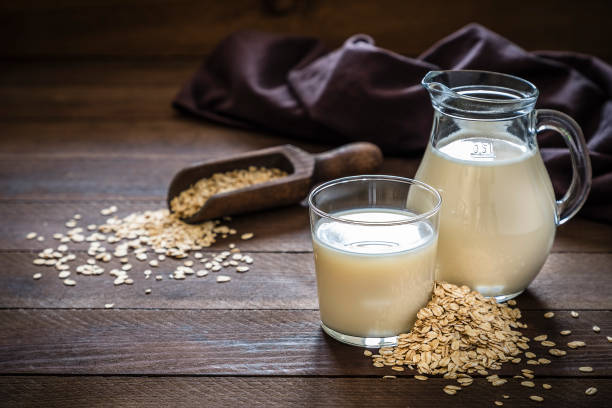
Plant-based milks aren’t solely for vegans. The prevalence of lactose intolerance within the Black community widens the market for oat, almond, and cashew milk products to be appreciated by flexitarians as well.
Nowadays, oat milk is taking over dairy milk at breakfast, lunch, and dinner tables throughout the US.
Not only is oat milk a wonderful alternative for those with allergies, but it also doesn’t have nuts, lactose, soy, and gluten (if derived from gluten-free oats).
2. Coconut Milk
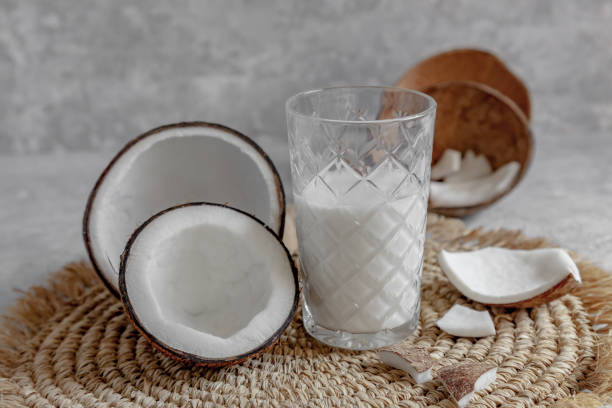
One of the yummiest and healthiest dairy-free, plant-based milk options is coconut milk, a liquid that you can find naturally inside ripe coconuts, stored within the meat of the coconut. When you go through the process of blending and straining that coconut meat, it becomes a thicker, coconut milk-like liquid.
Coconut milk is totally free from dairy, lactose, and soy. Although cow’s milk is filled with more protein and calcium compared to coconut milk, you can compensate for that through foods that are rich in calcium including kale, broccoli, watercress, and bok choy.
Coconut milk is a great source of essential nutrients such as manganese, copper, phosphorus, magnesium, iron, and potassium.
Bear in mind that coconut milk has its cons – high calorie and fat intake. While it’s a healthy kind of fat, it’s best to manage your portions, especially if you’re trying to lose weight.
3. Almond Milk
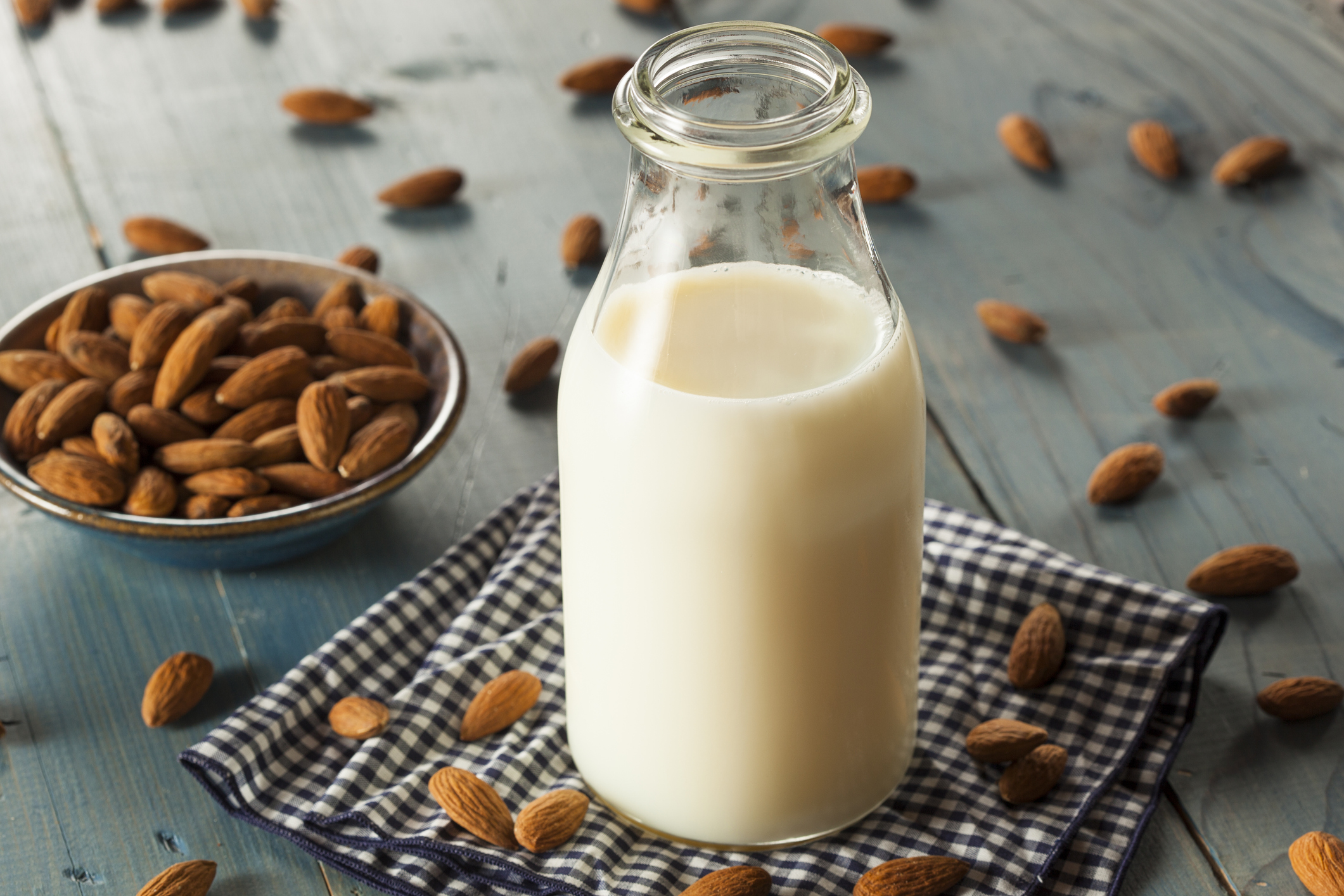
Almonds have plenty of health benefits to offer when it comes to nutrition. They’re low in saturated fatty acids, rich in unsaturated fatty acids, and have filling fiber, and phytosterol antioxidants, combined with plant protein.
On top of this, almond milk contains probiotic qualities that encourage digestion, detoxification, and healthy bacterial growth in the gut flora, which ultimately helps use up nutrients from food and prevent nutrient deficiencies.
4. Cashew Milk
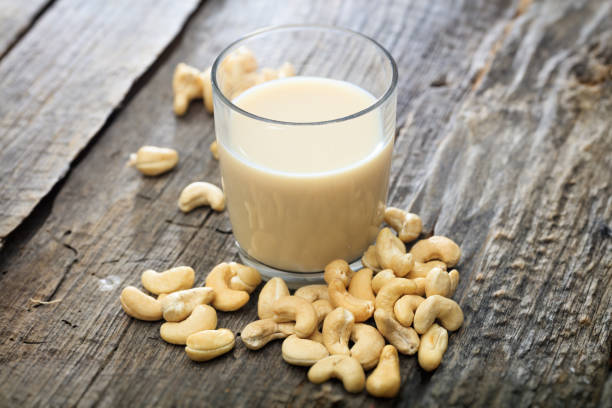
If you’re not a fan of oats, soy, or almonds, cashew milk is worth a try. Cashew milk’s consistency is creamy, making it ideal for a drink on its own or the perfect addition to your ritual morning coffee.
Cashew milk is dense in nutrients such as unsaturated fats, proteins, vitamins, and minerals. Not to mention it’s got plenty of magnesium, which is a go-to mineral in regards to better nerve function, keeping blood pressure in check, and keeping optimal heart health.
5. Kefir
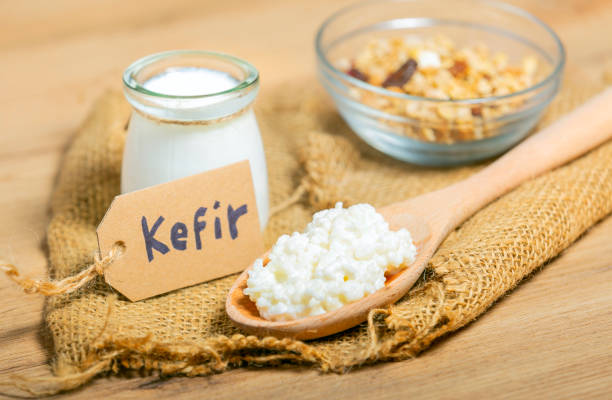
While kefir is technically deemed a dairy product, it’s fermented, and fermented milk products can help those who suffer from milk-related lactose intolerance. It is worth mentioning that fermentation shifts the chemical composition of foods, and in the case of fermented milk, kefir is relatively low in lactose.
A 2003 study published in the Journal of the American Dietetic Association found that kefir improved lactose digestion and tolerance, and including it in your diet could prove to be a potential tactic for getting over lactose intolerance.
There are also a plethora of kefir benefits, which include its ability to lessen inflammatory markers of IgE immunoglobulins, heal digestive conditions including IBS, and build bone density. If you have a cow’s milk allergy and are trying to be strict with your dairy-free diet, BlackDoctor.Org recommends that you go for goat milk kefir.




